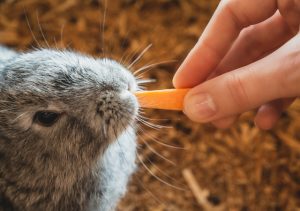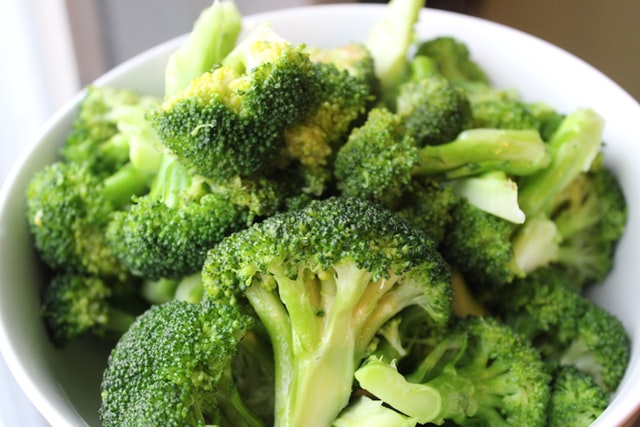
There is much debate in regards to whether rabbits can eat broccoli or not. Well, truth be told, there are a number of factors that should be considered before you actually feed your rabbit some broccoli.
As humans, we know that broccoli is one of the best superfoods we can eat, when it comes to vegetables. However, when it comes to rabbits, that might be different. Broccoli is a food that is known to produce gas in most who eat it. Gas is not a good thing when it comes to rabbits.
It is also debatable if Rabbits can pass flatulence, however they need to be passed properly. Gas build up in a rabbit is very painful and could become a fatal issue when it comes to rabbits. As odd as it sounds, unless this gas is released properly in a rabbit, it could require medical intervention.
Simply put, bunnies can have some broccoli. The leaves and small stems appear to be the best for your bunny rabbit. The large stems and the flower can cause issues. There are some who actually have no issue with any of the broccoli.
Vegetable Love
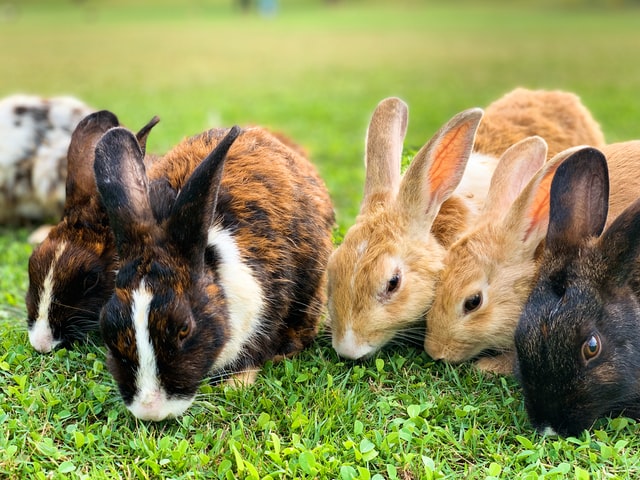
It is evident that rabbits love vegetables, however, there are many that they love that should not be a big part of their diets. Again, broccoli is considered one of those foods that can cause gas and rabbits have a difficult time with gassy foods.
Broccoli should only be given in very small amounts. Along with broccoli, it would be wise to include some high fiber foods to help push through the digestive tract. In general, broccoli is not a highly recommended food for your rabbit.
Although, if we sit near our bunny and we are eating, it seems almost natural to just toss some of our food to our little friend. These great little friends cannot have everything that we eat.
The cruciferous vegetables are high in Vitamins and minerals, but some are difficult to digest in the systems of a rabbit. The majority of rabbits seem to be unable to process gas from foods such as broccoli. This can become a fatal issue.
When you want to try feeding your rabbit broccoli, start with the broccoli leaves. Give just a little of one leaf and see how your rabbit handles it. It is highly suggested that you begin with the small amount and watch for signs. The next day, you could give more of the leaves if there is no sign of gas or adverse effects for your rabbit.
Gas Signs
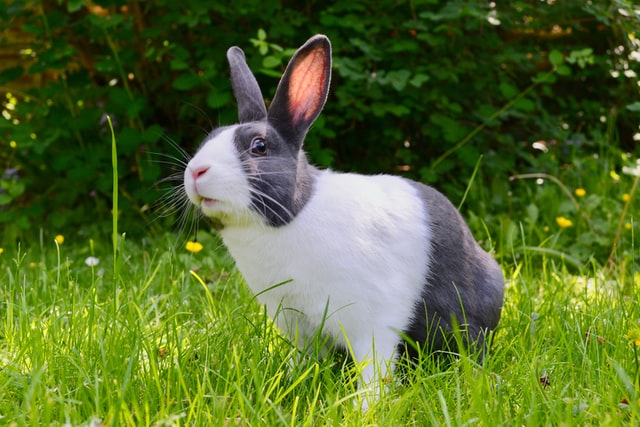
There are a few tell tale signs that your rabbit might be in pain from gas. One sign is they may seem lethargic, as though they are too tired to move or do anything. Secondly, you may hear a gurgling sound coming from the stomach of your rabbit.
You may find that your rabbit is attempting to hide from you, or is lying prone in a very unusual position for what you are used to. The rabbit may also avoid food and water. If you notice any of these signs, please call your veterinarian immediately.
He or she will be able to advise you what you can do to help your furry friend, or if you should bring him or her in to see the veterinarian. All these previous signs are adverse reactions to the broccoli.
Again, there are some rabbits who will handle eating broccoli very well and not experience these adverse reactions. You should still limit the amount of broccoli that you feed the rabbit, even if they can handle it fine. Think of it as a special treat and give only tiny amounts.
Proper Feeding
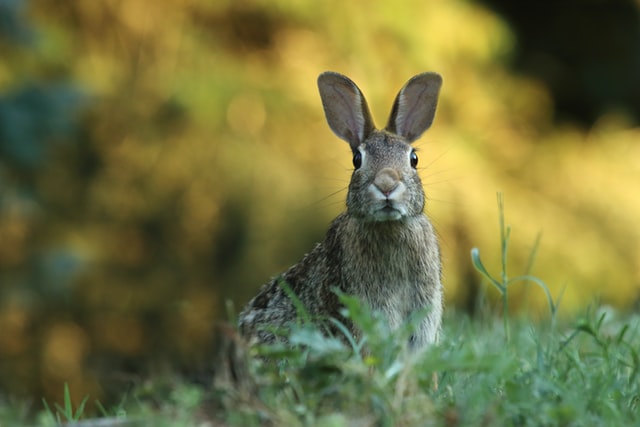
Most rabbits can eat roughly two cups of fresh vegetables each day. These vegetables can include leafy greens, root vegetables and some fruit. You need to follow the recommendations set forth from your veterinarian or some professional who knows rabbits and is knowledgeable as to what foods are okay.
Each meal should include at least two types of vegetable. In small amounts. The recommended ratios are 80% of Timothy hay, or another good quality hay equal to Timothy. 10% vegetables and 5% fruits as well as 5% highly nutritious pellets.
There is logic to the breakdown of foods. The timothy hay is great fiber and also helps to keep their teeth from growing out of control. The gnawing on the hay will wear the teeth down. Vegetables such as Romaine lettuce, bok choy, and broccoli greens are good for your rabbit.
Contrary to cartoons seen on television, carrots should not be given to your rabbit often. They are too high in carbohydrates and could increase the bacterial flora in the digestive tract, causing major issues for your rabbit.
Parsley, kale, dandelions greens and Swiss chard should also be avoided, as well as iceberg lettuce. The iceberg is mostly water with slight amounts of nutrients, so it is not beneficial to the rabbit.
Baby or young rabbits should be given alfalfa pellets and alfalfa hay. There is a high amount of calcium in these and that is exactly what young rabbits need at this stage.
As the rabbit gets older, it is okay to experiment with different acceptable vegetables and see how your rabbit is able to deal with them. Just as with humans, rabbits will not all like the same foods and they do also enjoy a variety.
Again, the best resource to help you determine what you can or cannot feed your rabbit and the quantity of each item, is your veterinarian. They may also have a food chart that you could print out so that the information is right near you when you are trying to determine what foods to give your bundle of joy each day.
It is highly important to follow the recommendations to prevent the health issues that could develop in your rabbit if and when they eat the wrong foods.
Fruit is mentioned to be given as a treat only to your rabbit. There are certain fruits that your rabbit should not have also. The good fruits that would be acceptable are apples, pears and berries. Again, not in high quantities, and only 1 to 2 times a week.
Even fruits can be dangerous to a rabbit, that is why it is recommended in small quantities only, as the sugar can become too much for the rabbit’s digestive system.
As for feeding the rabbit broccoli, there is a simple rule to follow, if your rabbit has the ability to handle broccoli with no digestive problems. You can feed the rabbit 1 tablespoon of broccoli for each 2 pounds of body weight for your rabbit.
So if your adult rabbit weighs 4 pounds you could give him or her 2 tablespoons of broccoli once or twice a week, and there should be no complications. However, please do remember that baby rabbits, and also juvenile rabbits should not have any broccoli. It is just too harsh on their digestive systems.
Fresh Water
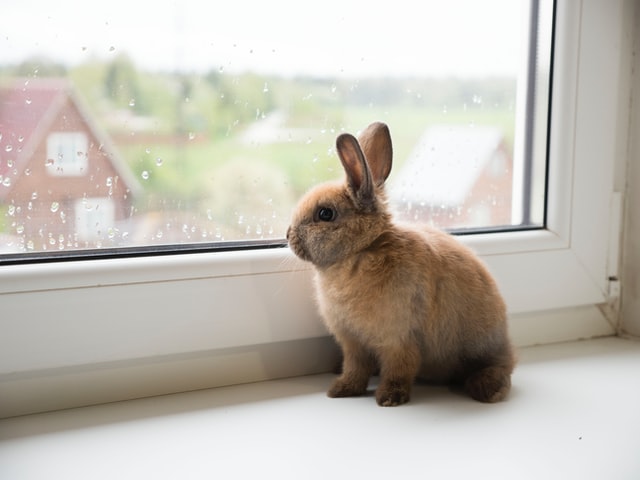
Always remember to have a water bottle or water system for your rabbit. They need fresh water available to them all day long.
Feces
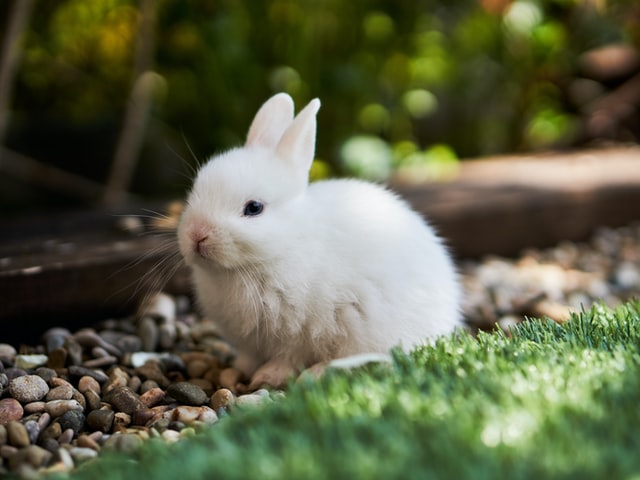
Rabbit owners must always keep track of their rabbit’s feces. When there is too little, there is likely an issue, something is wrong with the rabbit.
You may also witness something that seems totally disgusting to humans, but it is completely normal for a rabbit. They will eat certain pellets out of their feces. It is not all of the feces they will eat, only their night feces is to be consumed by the rabbits. The rabbit owner will not usually see the ones that are consumed by the rabbit. The night feces are generally eaten as soon as they leave the rabbit’s body.
Chew Toys
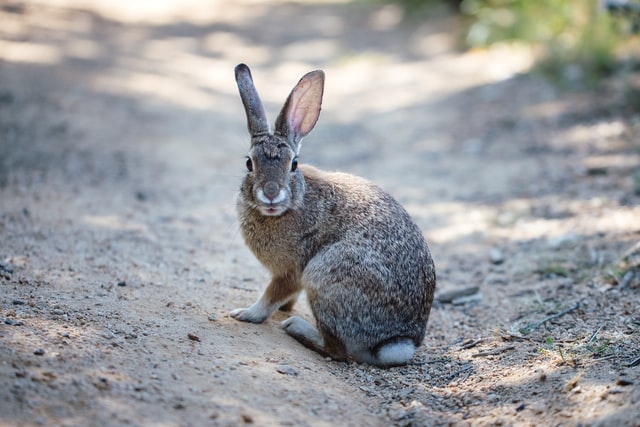
You may find that you have a rabbit that loves to chew. You cannot over feed your rabbit for fear of obesity and other health issues. Be sure to pick up some chew toys for your rabbit. These will help your rabbit when they feel the need to chew.
Variety
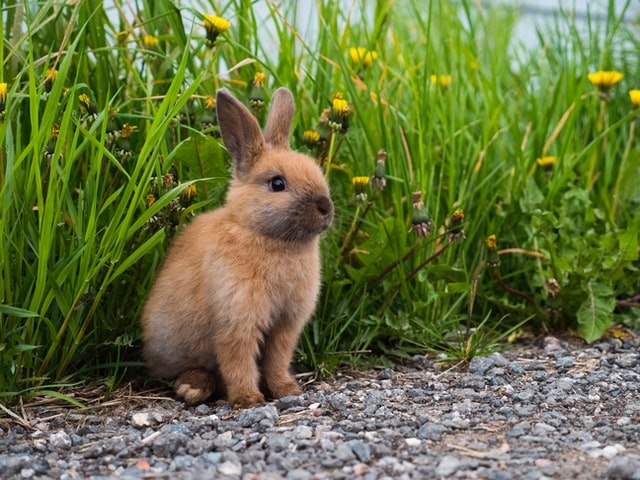
Variety is the spice of life to humans. However, to a rabbit, it must happen slowly. When starting a new vegetable for them, continue the same one for a few days so you will be able to tell if your rabbit experiences any sort of problems with the food. You can introduce a new approved vegetable once a week and see how the rabbit is handling it.
But, do not do more than one new item at a time. It will be impossible to tell what causes the issue and what is not causing the issues. It is also possible that you will find that your rabbit may not like everything you offer. Do not force the issue as this will cause side effects you do not want for your little buddy.


